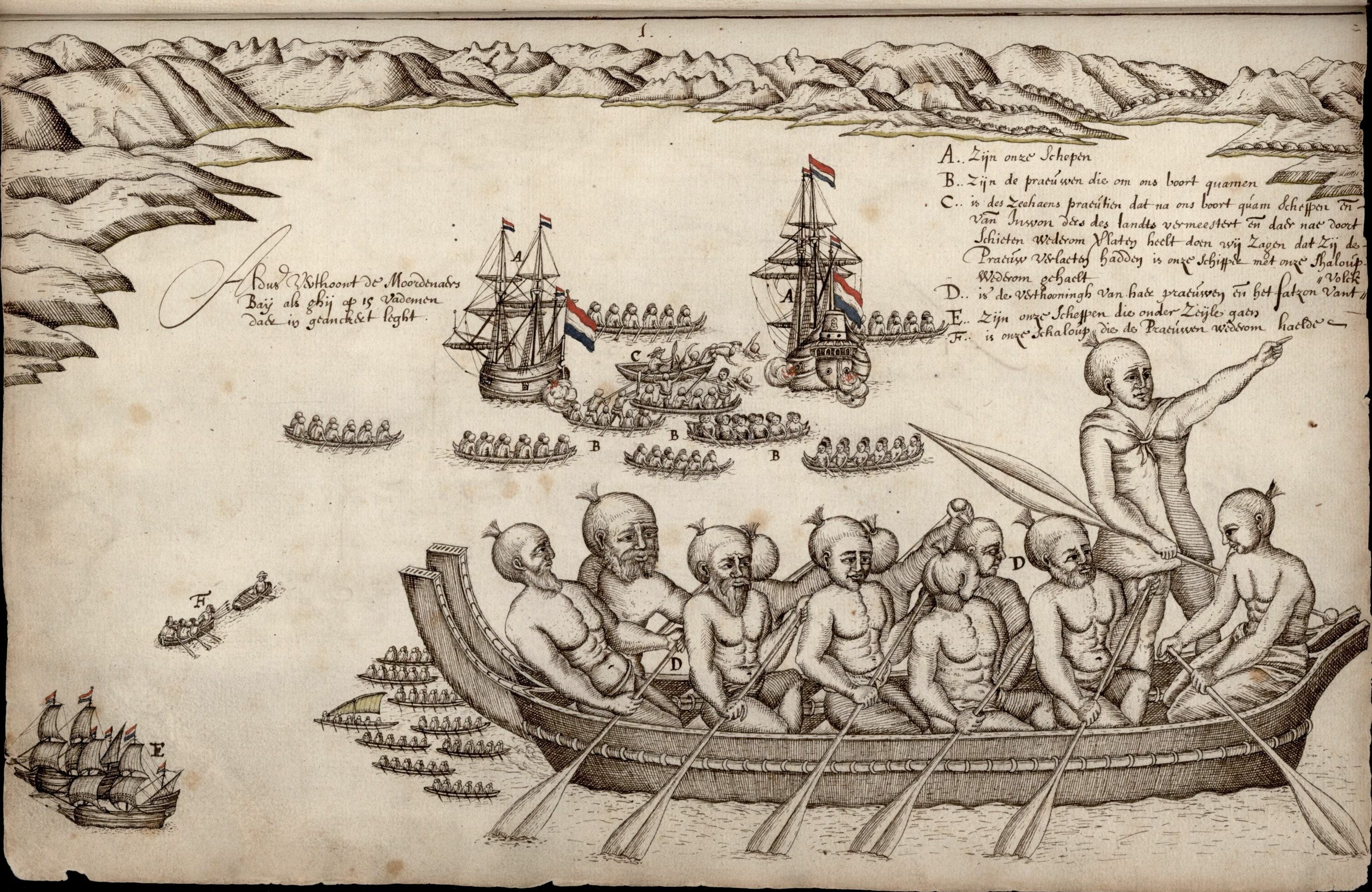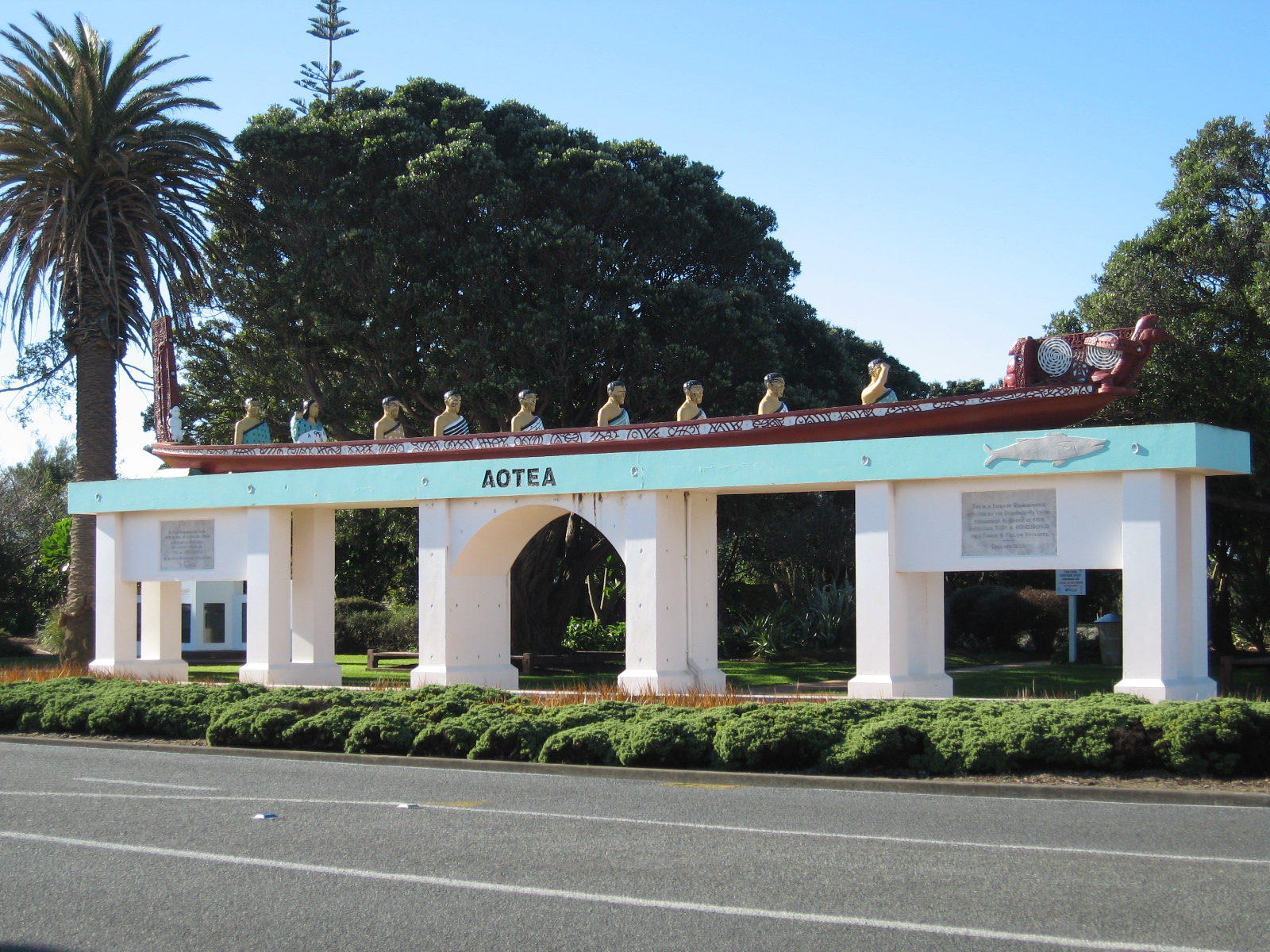|
Toto (mythology)
In Māori mythology, Toto was a chief in Hawaiki. He had two daughters, Kuramarotini, the wife of Hoturapa, and Rongorongo, the wife of Turi. Toto felled a tree and made two canoes. One of these, the Aotea, was given to Turi, and was sailed by him to New Zealand. The other canoe, the Matahourua, was later commandeered by Kupe who sailed it to New Zealand with Kuramarotini, Hoturapa In Māori tradition, Hoturapa was a chief of Hawaiki. His wife Kuramarotini owned the canoe Matahourua. One day, Hoturapa and his wife went out fishing in the Matahourua with their friend Kupe. Kupe tricked Hoturapa to dive into the water to free ...'s wife (Tregear 1891:527). References *E.R. Tregear, ''Maori-Polynesian Comparative Dictionary'' (Lyon and Blair: Lambton Quay), 1891. Māori mythology Legendary Polynesian people {{Māori-myth-stub ... [...More Info...] [...Related Items...] OR: [Wikipedia] [Google] [Baidu] |
Māori Mythology
Māori mythology and Māori traditions are two major categories into which the remote oral history of New Zealand's Māori may be divided. Māori myths concern fantastic tales relating to the origins of what was the observable world for the pre-European Māori, often involving gods and demigods. Māori tradition concerns more folkloric legends often involving historical or semi-historical forebears. Both categories merge in to explain the overall origin of the Māori and their connections to the world which they lived in. Māori had yet to invent a writing system before European contact, beginning in 1769, so they had no method to permanently record their histories, traditions, or mythologies. They relied on oral retellings memorised from generation to generation. The three forms of expression prominent in Māori and Polynesian oral literature are genealogical recital, poetry, and narrative prose. Experts in these subjects were broadly known as . The rituals, beliefs, and ge ... [...More Info...] [...Related Items...] OR: [Wikipedia] [Google] [Baidu] |
Hawaiki
In Polynesian mythology, (also rendered as in Cook Islands Māori, in Samoan, in Tahitian, in Hawaiian) is the original home of the Polynesians, before dispersal across Polynesia. It also features as the underworld in many Māori stories. Anne Salmond states ''Havaii'' is the old name for Raiatea, the homeland of the Māori. When British explorer James Cook first sighted New Zealand in 1769, he had Tupaia on board, a Raiatean navigator and linguist. Cook's arrival seemed to be a confirmation of a prophecy by Toiroa, a priest from Māhia. At Tolaga Bay, Tupaia conversed with the ''tohunga'' associated with the school of learning located there, called Te Rawheoro. The priest asked about the Maori homelands, 'Rangiatea' (Ra'iatea), 'Hawaiki' (Havai'i, the ancient name for Ra'iatea), and 'Tawhiti' (Tahiti). Etymology Linguists have reconstructed the term to Proto- Nuclear Polynesian ''*sawaiki''. The Māori word figures in legends about the arrival of the Māori in A ... [...More Info...] [...Related Items...] OR: [Wikipedia] [Google] [Baidu] |
Kuramarotini
In Māori mythology, Kuramarotini was the daughter of Toto, a chief of Hawaiki. Toto made a gift to her of the canoe Matahourua, in which she went out fishing with her husband Hoturapa and their friend Kupe. Kupe tricked Hoturapa to dive into the water to free one of the lines. Once Hoturapa was overboard, Kupe set sail for New Zealand New Zealand ( mi, Aotearoa ) is an island country in the southwestern Pacific Ocean. It consists of two main landmasses—the North Island () and the South Island ()—and over 700 smaller islands. It is the sixth-largest island count ... with Kuramarotini (Tregear 1891:186). References * Edward R. Tregear, ''Maori-Polynesian Comparative Dictionary'' (Lyon and Blair: Lambton Quay), 1891. Māori mythology Legendary Polynesian people Women in mythology {{Māori-myth-stub ... [...More Info...] [...Related Items...] OR: [Wikipedia] [Google] [Baidu] |
Hoturapa
In Māori tradition, Hoturapa was a chief of Hawaiki. His wife Kuramarotini owned the canoe Matahourua. One day, Hoturapa and his wife went out fishing in the Matahourua with their friend Kupe. Kupe tricked Hoturapa to dive into the water to free one of the lines. Once Hoturapa was overboard, Kupe set sail for New Zealand New Zealand ( mi, Aotearoa ) is an island country in the southwestern Pacific Ocean. It consists of two main landmasses—the North Island () and the South Island ()—and over 700 smaller islands. It is the sixth-largest island count ... with Kuramarotini (Tregear 1891:86, 186). References *E.R. Tregear, ''Maori-Polynesian Comparative Dictionary'' (Lyon and Blair: Lambton Quay), 1891. Māori mythology Legendary Polynesian people {{Māori-myth-stub ... [...More Info...] [...Related Items...] OR: [Wikipedia] [Google] [Baidu] |
Rongorongo (wife Of Turi)
Rongorongo is an ancestress from Ra'iātea Island (Hawaiki) in Māori tradition, particularly of the Ngā Rauru, Ngāti Ruanui, Ngāruahine, Taranaki, and Whanganui iwi. She was the wife of Turi, the chief of the '' Aotea'' canoe which was given to Rongorongo as a present by her father Toto. After Rongorongo overheard Uenuku chanting incantations of Turi's murder, Turi and his people fled to New Zealand in the ''Aotea'' and arrived at the mouth of the Patea River. In te reo, ''rongorongo'' holds meaning to the concepts of news, fame, and report; or it can be a verb A verb () is a word (part of speech) that in syntax generally conveys an action (''bring'', ''read'', ''walk'', ''run'', ''learn''), an occurrence (''happen'', ''become''), or a state of being (''be'', ''exist'', ''stand''). In the usual descri ... (-''hia'', -''na'') to describe experiences such as hearing, smelling, and feeling. References Māori mythology Women in mythology Legendary progenitors ... [...More Info...] [...Related Items...] OR: [Wikipedia] [Google] [Baidu] |
Turi (mythology)
Turi or TURI may refer to: Places ;Ecuador *Turi, Ecuador, a town and parish ;Estonia * Türi, a town * Türi Parish, a rural municipality in Järva County ;Indonesia * Turi, Lamongan, a district in Lamongan Regency, East Java * Turi, Magetan, a village in Panekan, Magetan Regency, East Java * Turi, Yogyakarta, a district in Sleman Regency, Yogyakarta ;Italy * Turi, Apulia, a ''comune'' in the province of Bari ;Kenya * Turi, Kenya, a settlement west of Nakuru Persons with the name ''"Turi" is also nickname for the given name Salvatore'' * Turi (Māori ancestor), an historical Maori leader * Indrek Turi (born 1981), Estonian decathlete * Johan Turi (1854–1936), Norwegian-Sami wolf-hunter and writer * Pasquale Turi (born 1993), Italian footballer * Géza Turi (born 1974), Hungarian footballer Other uses * Turi (Caste), a social group of East India * Turi (Pashtun tribe), a Pashtun tribe in Pakistan and Afghanistan * Aheria, an ethnic group of India also known as Turi * Tu ... [...More Info...] [...Related Items...] OR: [Wikipedia] [Google] [Baidu] |
Aotea (canoe)
In Māori mythology, Māori tradition, ''Aotea'' is one of the canoes () in which Māori migrated to New Zealand; it is particularly associated with the tribes of Taranaki and Whanganui, including Ngāti Ruanui, Ngāruahine, Ngā Rauru and other tribal groups. History ''Aotea'' was a double canoe built by Toto from half of a great tree from Hawaiki, the other half being used for the canoe ''Matahourua''. Toto gave ''Aotea'' to his daughter Rongorongo (wife of Turi), Rongorongo, who was married to Turi (Māori ancestor), Turi. In strife with the chief Uenuku, Turi killed the chief's son and thereafter had to flee for New Zealand with 33 passengers. During the voyage, they stopped at Rangitahua and encountered some of the crew from the ''Kurahaupō'' canoe (Craig 1989:24). The ''Aotea'' canoe arrived at Aotea Harbour on the west coast of the North Island, and its people eventually settled in the Taranaki region. Aircraft 'Aotea' was the name given to the first Jumbo Jet (a Boe ... [...More Info...] [...Related Items...] OR: [Wikipedia] [Google] [Baidu] |
New Zealand
New Zealand ( mi, Aotearoa ) is an island country in the southwestern Pacific Ocean. It consists of two main landmasses—the North Island () and the South Island ()—and over 700 smaller islands. It is the sixth-largest island country by area, covering . New Zealand is about east of Australia across the Tasman Sea and south of the islands of New Caledonia, Fiji, and Tonga. The country's varied topography and sharp mountain peaks, including the Southern Alps, owe much to tectonic uplift and volcanic eruptions. New Zealand's capital city is Wellington, and its most populous city is Auckland. The islands of New Zealand were the last large habitable land to be settled by humans. Between about 1280 and 1350, Polynesians began to settle in the islands and then developed a distinctive Māori culture. In 1642, the Dutch explorer Abel Tasman became the first European to sight and record New Zealand. In 1840, representatives of the United Kingdom and Māori chiefs ... [...More Info...] [...Related Items...] OR: [Wikipedia] [Google] [Baidu] |
Matahourua
In Māori tradition, ''Matahourua'' was the canoe of the legendary hero Kupe, who, in some accounts, was the discoverer of Aotearoa (New Zealand) (Craig 1989:161, Grey 1970:108, 161–3). See also *List of Māori waka A ''list'' is any set of items in a row. List or lists may also refer to: People * List (surname) Organizations * List College, an undergraduate division of the Jewish Theological Seminary of America * SC Germania List, German rugby union ... References *R.D. Craig, ''Dictionary of Polynesian Mythology'' (Greenwood Press: New York, 1989). *G. Grey, ''Polynesian Mythology'' (reprint Taplinger Press: New York, 1970). Māori waka Māori mythology {{Māori-myth-stub ... [...More Info...] [...Related Items...] OR: [Wikipedia] [Google] [Baidu] |
Kupe
Kupe ( ~1180-1320) was a legendary Polynesian explorer, navigator and great rangatira of Hawaiki, who is said to have been the first human to discover New Zealand. Whether Kupe existed historically is likely but difficult to confirm. He is generally held to have been born to a father from Rarotonga and a mother from Raiatea, and probably spoke a proto-Māori language similar to Cook Islands Māori or Tahitian. His voyage to New Zealand would ensure that the land would be known to the Polynesians, and he would therefore be responsible for the genesis of Māori civilisation. Kupe features prominently in the mythology and oral history of some Māori iwi (tribes), but the details of his life differ between iwi. Various legends and histories describe Kupe's extensive involvement in the settlement of Aotearoa, around 1000–1300 CE, with many talking of his achievements, such as the hunting and destruction of the great octopus, Te Wheke-a-Muturangi. Time of arrival Estimates of ... [...More Info...] [...Related Items...] OR: [Wikipedia] [Google] [Baidu] |


